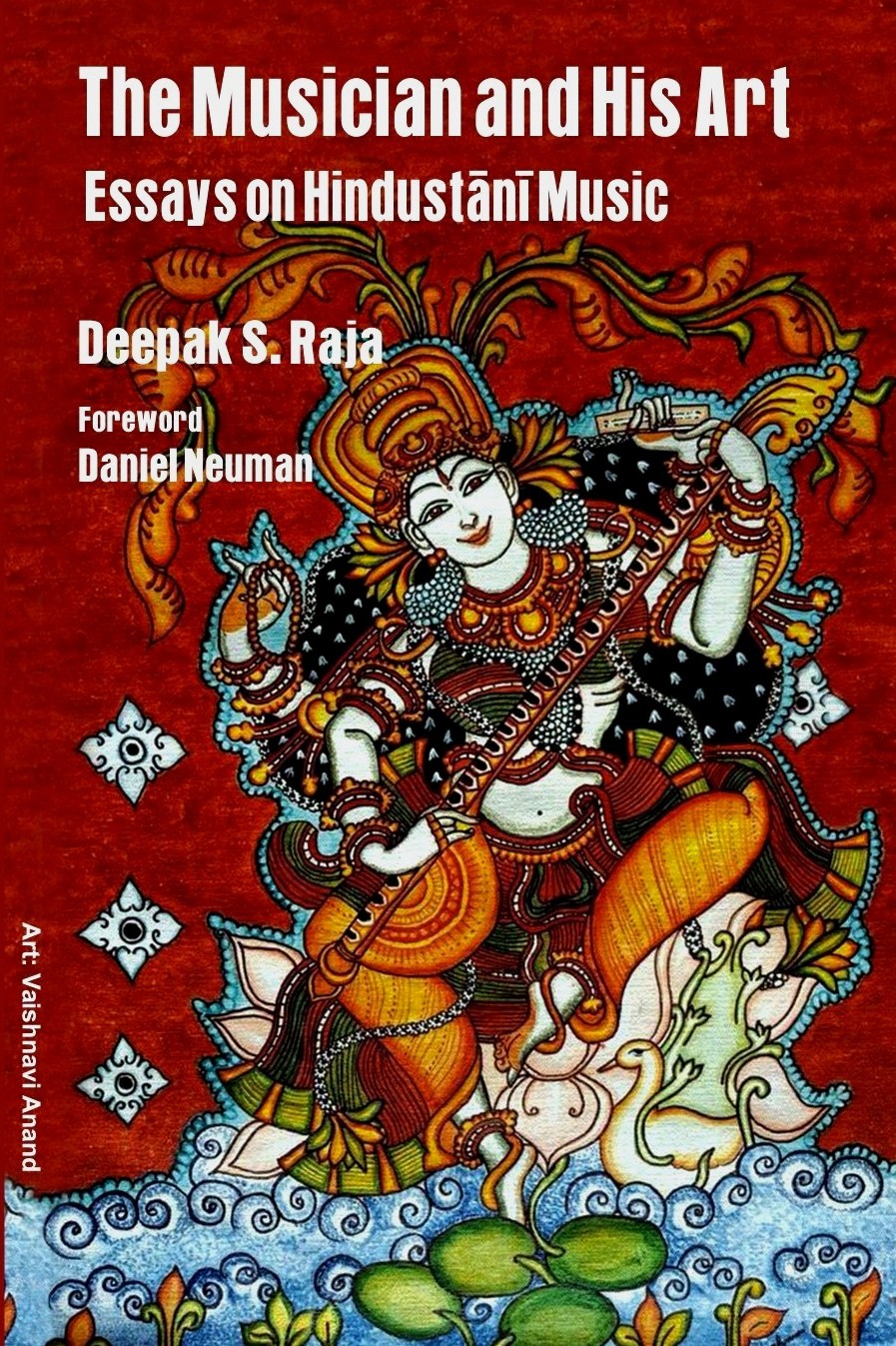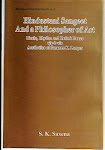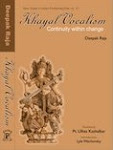
Yashwant Buwa spoke to Deepak Raja on June 5, 2003
I was born and brought up in Pune. My father operated a couple of cabs in the city. He was untrained in music, but had a lovely voice and sang devotional songs very well. That is all I can claim by way of a family background in music. It was my uncle, Govardhan Buwa Naik, who was responsible for pushing me in this direction. He was an alumnus of the first batch (1901) of Vishnu Digambar’s Gandharva Mahavidyalaya (Music College) in Lahore under a nine-year apprenticeship in music. The only explanation for his having gone there was that lodging, boarding, and training were free. That was my grandfather’s way of ensuring that his family could survive on his income. Govardhan Buwa could not sing, but became a competent player on the Harmonium, Tabla and Dilruba (a short-necked, fretted, lute of the bowed variety). So, after graduating, he started a music school in Bombay. Because he had no children, he was keen that I should train as a musician and take over its management after him.
I was born and brought up in Pune. My father operated a couple of cabs in the city. He was untrained in music, but had a lovely voice and sang devotional songs very well. That is all I can claim by way of a family background in music. It was my uncle, Govardhan Buwa Naik, who was responsible for pushing me in this direction. He was an alumnus of the first batch (1901) of Vishnu Digambar’s Gandharva Mahavidyalaya (Music College) in Lahore under a nine-year apprenticeship in music. The only explanation for his having gone there was that lodging, boarding, and training were free. That was my grandfather’s way of ensuring that his family could survive on his income. Govardhan Buwa could not sing, but became a competent player on the Harmonium, Tabla and Dilruba (a short-necked, fretted, lute of the bowed variety). So, after graduating, he started a music school in Bombay. Because he had no children, he was keen that I should train as a musician and take over its management after him.
At my sacred thread ceremony, which took place when I was nine, my uncle invited the famous vocalist, Mirashi Buwa (Yashwant Sadashiv Mirashi). My uncle’s Guru, Vishnu Digambar, and Mirashi Buwa had studied together under Balkrishna Buwa Ichalkaranjikar. My uncle and Mirashi Buwa thus belonged to a close-knit gharana fraternity. Mirashi Buwa had just moved to Pune from Nashik, after serving a leading theatre company for 24 years. Over lunch, my uncle requested the stalwart to teach me, and he agreed. This is how it started. Every single day, after returning from school, I would go to Mirashi Buwa’s house and learn music. As luck would have it, my uncle died within a year of my starting music lessons. There was no longer a ready business awaiting me. But, I continued studying music.
The relationship was in the traditional mould, the only difference being that I continued to live with my parents. I paid no fees, and spent all my time – other than school – with my Guru. Initially, the teaching was by the “direct method” – reproducing what the Guru sings. No questions were to be asked. No logic was to be understood. Despite this, within five years, I found myself so intoxicated with music that I could no longer concentrate on my studies. So, four years short of graduation, I quit school in favour of music.
Making a living
My training with Mirashi Buwa continued for 12 years. By this time, I was 21, and had to start making a living. Music was all I knew. Those were difficult days for musicians, particularly in Pune. I spent a whole year contemplating my course of action. My childhood friend, and neighbour from Pune, Ram Marathe, was by now in Bombay, making some headway as a professional singer. So, in 1950, I decided to take on the world with his helping hand. Though I had no experience, the only path open to me was teaching music. Fees were poor in those days. Each student would pay Rs. 10 or 15 per month. With great difficulty, I earned about Rs. 50 a month. But, living was cheap – my monthly food bill was Rs. 30 -- I managed. Though I did not ultimately inherit a music school, teaching was evidently my destiny anyway. For over 50 years now, I have been teaching. I must have, by now, taught over 125 students. Several have become successful vocalists. Some are just making a living as music teachers. Some pursue other professions and enjoy music as a hobby. And, many have merged into the faceless audience of Hindustani music.
Moving to Bombay widened my horizons. Soon after I moved, Jagannath Buwa Purohit moved into our locality. I was greatly attracted to his style. So, I studied with him for about six years. In the same spirit, I studied with KG Ginde, SCR Bhat, Nivrutti Buwa Sarnaik, Master Krishnarao Phulambrikar, Mallikarjun Mansoor, and the Natyasangeet singer, Chhota Gandharva. In my childhood, I had heard Ramkrishna Buwa Vaze, and his style had made a deep impact on me. So, in my singing, you will find the glimpses of each of these stalwarts.
The philosophy of music
I am conservative, but not orthodox. I have a strong foundation laid in the Gwalior style. But, I was never a prisoner of the gharana. I sought out every musician whose style attracted me, and learnt from him what I could. Jagannath Buwa often told me that the basic requirement of music is that magical quality called “Rang” (literally: colour). As a quality in music, “Rang” transcends considerations of voice quality, grammar and communication of rasa (emotional content). Public appeal is not my yardstick for validating my music. I will not sacrifice the dignity of my art to charm audiences. I will not, for instance, make a Thumree out of a Khayal, or start singing with my body. But, an artist cannot be a mere scientist. If he wants to command an audience and also command respect, he has to strike the tricky balance between the sanctity of art and the listening pleasure of audiences. If he cannot do this, he can remain a teacher.
My recordings have been in the market for several years. I have been performing on the radio since 1946, and also broadcast two National Programmes over All India Radio. And, for a long time, nobody noticed. In the last ten years, people suddenly realised that Yashwant Buwa can also sing. Today, I have admirers not only in our home state of Maharashtra, but also in Calcutta, Delhi and a few other cities. Several institutions have bestowed honours on me for my services as a teacher and performer. At 75, I can still hold an audience for two hours. I have no regrets. But, had recognition come when I was younger, people would have heard better music from me.
The pursuit of music – then and now
Our times were tough. The status of musicians in society was low. There was no support for music either from government or from private benefactors or institutions. There was no ‘career’ in music, except for the greatest. Audiences were small. The Guru was the only source of musical inputs for students. There was radio, and there was the gramophone; but not many people could afford either. There were concerts; but mainly for invited audiences.
To begin with, finding a Guru was tough. We did not pay fees, but rendered all manner of services in lieu of training. The relationship was totally one-sided, and often oppressive. He taught the way he wanted to, and there was no appeal against it. There was no notation, no possibility of recording training sessions, no grammar, no logic. You could encounter musicians who could sing a raga very well, but go blank if you asked them the scale of the raga. Learning was primarily by reproducing what the Guru sang. From studying music, to making a career, it was struggle, struggle, and struggle. The positive aspect of this was that, because of the price they had paid for their success, the survivors conducted themselves, and practiced their art, with dignity. They treated that passage between the stage and the audiences as sacred.
The situation today is exactly the reverse. Anyone can learn music if he can afford it. Good Gurus are, of course, more scarce than they were in our times, and locating them can take a lot of trial and error. Recorded music is so accessible that it is possible to become a reasonable vocalist even without a Guru. The relationship between the Guru and his disciple is now a commercial one. A student can demand an explanation of the logic and get it. He can record training sessions for revision. Career opportunities are plenty, and the money is good for the successful. Society, government, and institutions encourage music.
Most important is the emergence of a market, with audiences willing to pay for music. For creating a substantial class of connoisseurs, we have to thank the educational efforts of the two giants, Bhatkhande and Vishnu Digambar, and their followers. Glamour and money have now made music a rat race that everyone with half a chance wants to join. The journey is still tough. But, it is a struggle, which takes the dignity of the art as its first casualty. It makes art cross the frontier between the musician and the audience to plunge into pockets. And, yes, many bright kids now get money and fame ahead of maturity, get bloated heads, stagnate, and fall by the wayside. The demands of success are changing, as they inevitably will. Despite these anxieties, I am optimistic about Hindustani music for several reasons – today’s kids are intelligent and talented, studying music is no longer difficult, and there are ample opportunities for building a career in it.
(c) Deepak S. Raja 2003
Read a detailed profile of the artist in: "Khayal Vocalism: Continuity within Change".
The finest recordings of Yashwant Buwa Joshi have been produced by India Archive Music Ltd., New York. IndiaArcMu@aol.com






No comments:
Post a Comment